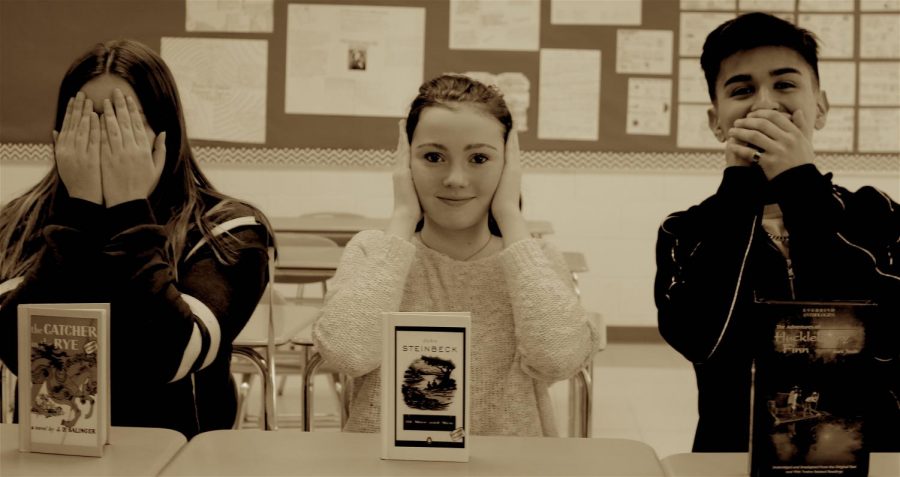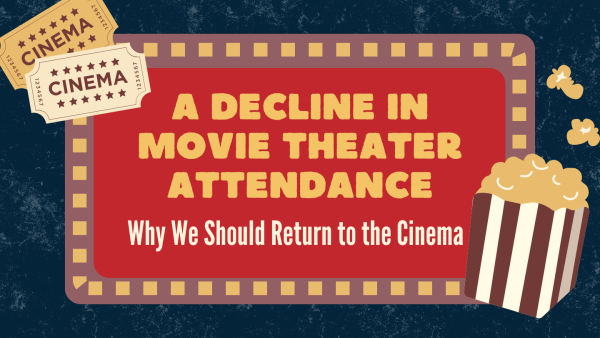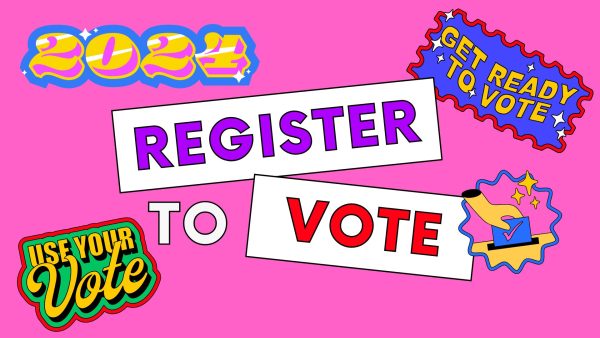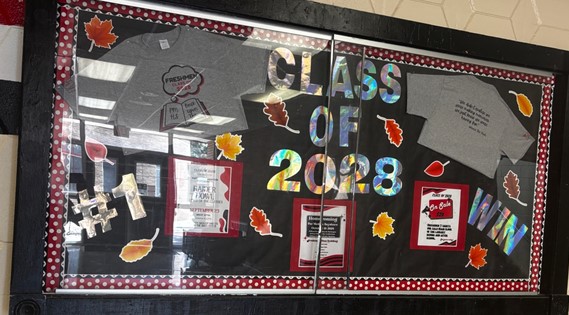Controversial Classics: The BIG Debate
Have certain texts become outdated or do they still have a place in the classroom?
Photo by Alison Mckeough
PMHS students see no evil, hear no evil, and speak no evil on the subject of banned books.
Throughout our high school experience so far, you might have noticed that some of the books in the curriculum are somewhat controversial. Many of these books are classics that our parents have read, as a part of their high school curriculum.
As a brighter light is being shined on racism in literature, many states are banning books that contain sensitive material that can give the wrong idea to young readers.
Parents and librarians across the country have been arguing for years that adolescents should not have to read material with storylines that make students feel uncomfortable, or suggest an outdated mindset. But, how will we ever learn about times before us if we cannot learn from a firsthand source?
The opposing argument is, how could offensive material be a student’s only way of learning about the past? Isn’t that what teachers are for?
A clear example of a book that contains sensitive, outdated mindsets is To Kill A Mockingbird by Harper Lee, which takes place in a highly prejudiced America. In 1977, this book was temporarily banned from a school in Eden Valley, Minnesota for its use of offensive language towards women, and again challenged in 1980 by a New York school for being a “filthy, trashy novel”. This book has been taken out of some school curriculums across the country.
“After asking PMHS English teacher, Mrs. Hassett her thoughts she said, “The lesson taught by To Kill A Mockingbird is more powerful than the slurs that were used.”
The Catcher In The Rye by J.D Salinger has also been banned from multiple schools across the country for being “anti- white” and “centered around negative activity”. This book is banned from most high schools in the U.S. “If we don’t want our children speaking a certain way and adopting negative traits in their normal lives, why should they be exposed to it in the classroom?” the opposition often says.
But how will students ever learn to make the decision for themselves? If our lives are being censored so heavily in the classroom, when we step out into the real world, how shocked will we be by what greets us? PMHS English teacher, Mrs. Davidson says, “Even though some parts can make you uncomfortable, it gives you a better understanding of why you shouldn’t have a certain mindset.”
An even greater example is Of Mice and Men by John Steinbeck, which greatly offended not only the African American race, but also women and the intellectually disabled.
More and more parents and teachers are becoming outraged by the outdated culture students are being forced to study. To some, these books are a step backwards in the efforts to spread tolerance and abolish the social divide between ourselves and those who we consider “different”. To others, the past is the first place to start when ensuring that previous mistakes do not happen again.
As it is often said, if you don’t learn from the past, it is likely to repeat itself.
The question is, where and how should schools draw the line? If a student is reading a book that offends them, should they still have to read it?
There is no doubt that as we pursue our academic careers, we will be reading sensitive material. Books may not always contain our beliefs, but it is up to us, as the students to decide how serious we are about our beliefs, and if such beliefs should prevent us from growing.
PMHS student Spencer S. expressed his opinion: “Classics, no matter how offensive, should not be banned from schools. A book is art. Art should not be banned because it is sill a part of our history.”
Parents and librarians have been challenging school curriculums about as long as people have had contrasting opinions, but racial and political beliefs have never been as sensitive as they are today. Because of this, the debate is nowhere near over.
This being said, it can be agreed that schools have an important role in the mindsets of their students, and therefore, should make important decisions taking such into account.
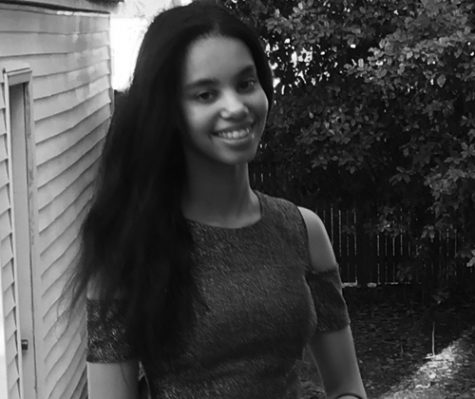
Grade 9
“My mission in life is not merely to survive, but to thrive; and to do so with some passion, some compassion, some humor, and some style”
~Maya...

